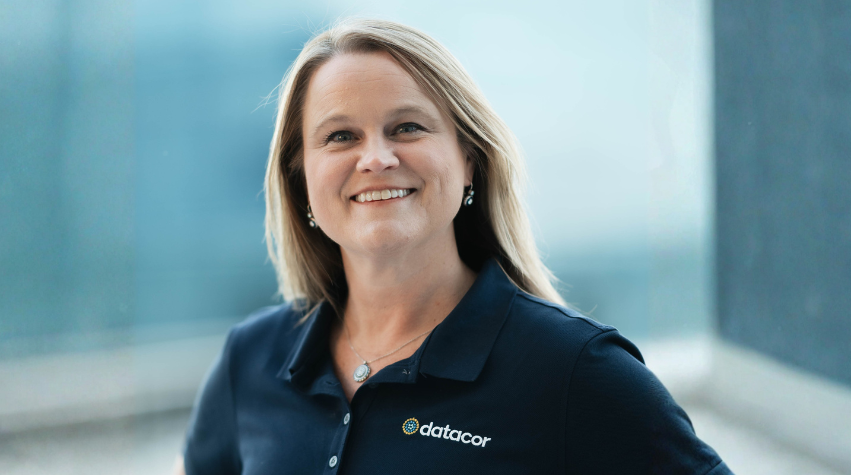
Disclosure: This post is sponsored by Datacor and reflects their views, opinions, and insights.
The AIChE Annual Meeting is a place where chemical engineers come together to explore new technologies and discuss the future of the profession. CHEMCAD is a familiar presence at the Annual Meeting, but this year they’re arriving with a fresh look and a new name as part of the Datacor suite of engineering software. This year, they’re showcasing not only CHEMCAD, their flagship process simulation software, but also their specialized pipe flow modeling solutions.
We spoke with the Datacor team about what attendees can expect from Datacor, how CHEMCAD continues to evolve under the Datacor umbrella, and why simulation remains an essential tool for both students and practicing engineers.
What does it mean for users that CHEMCAD is now part of the Datacor portfolio?
Bringing CHEMCAD into the Datacor family represents a major step forward for the software. Datacor has a long history of developing innovative software solutions for the chemical industry. With CHEMCAD, we’re expanding it beyond a simulation tool into part of an integrated platform for smarter decision-making.
Datacor is investing in development, deeper integration with complementary applications, and a stronger focus on customer support. Users can expect faster innovation cycles, more seamless workflows, and new opportunities to link simulation data with broader business and engineering systems.
CHEMCAD, now part of the Datacor suite, has been a familiar presence at AIChE events for years. What will you be showcasing at the 2025 Annual Meeting?
This year, we’re excited to highlight two key presentations that demonstrate the breadth of CHEMCAD’s role in both academia and industry. One presentation focuses on how CHEMCAD helps engineering students bridge the gap between classroom theory and real-world process simulation. The other explores integrating MATLAB with CHEMCAD, showing how chemical engineers can pair advanced programming and data analysis with robust process modeling to solve complex problems.
At our booth, we’ll also showcase CHEMCAD’s latest features for chemical process simulation, as well as our specialized pipe flow modeling solutions. Attendees can see firsthand how engineers use these tools to streamline design, troubleshoot operations, and improve both safety and efficiency.
Let’s talk about the academic presentation. Why is CHEMCAD such a strong fit for the classroom?
CHEMCAD provides a hands-on way for students to experiment with chemical processes and gain intuition about how systems behave under different conditions. In a classroom, you’re often limited to simplified calculations or small-scale experiments. With CHEMCAD, students can model industrial-scale processes, test “what if” scenarios, and see how process design decisions affect performance in real time. It bridges the gap between textbooks and practice, equipping the next generation of engineers with the digital skills they’ll use throughout their careers.
And what about the MATLAB integration? How does that benefit practicing engineers?
By integrating MATLAB with CHEMCAD, engineers can link powerful algorithms directly to process simulations. For example, they might use MATLAB to optimize a reactor’s operating conditions or analyze sensitivity studies across hundreds of simulation runs. It extends CHEMCAD’s capabilities and makes the software part of a larger, more versatile engineering toolkit.
Datacor also emphasizes specialized modeling tools. Can you tell us about your pipe flow modeling demonstrations?
Absolutely. Pipe flow modeling is critical for safe and efficient chemical processing, especially in systems where pressure drops, hydraulics, and network configurations are key factors. At the conference, we’ll demonstrate how our solutions handle everything from simple piping systems to complex plant networks. Engineers will see how the software can model compressible and incompressible flow, size piping, and evaluate the impact of process changes. This is especially valuable for troubleshooting bottlenecks, improving energy efficiency, and ensuring compliance with safety standards.
Finally, what do you hope attendees take away about Datacor?
Our goal is to show how process simulation tools like CHEMCAD and our pipe flow modeling solutions empower engineers at every stage of their careers—whether they’re students learning fundamentals, researchers testing new ideas, or practitioners solving daily operational challenges. We hope attendees leave with practical insights into how simulation can drive innovation, reduce risk, and make chemical processes more sustainable and efficient.
Closing thoughts
With its dual focus on education and professional practice, CHEMCAD is a great example of how process simulation continues to shape chemical engineering. From helping students grasp fundamental concepts to enabling practicing engineers to integrate data-driven optimization into their workflows, CHEMCAD and Datacor are excited about the future and helping engineers meet the industry’s evolving needs.
The 2025 AIChE Annual Meeting will be held in Boston, MA, from November 2–6, 2025. Learn more and register today.

Julie Bedsole
Julie Bedsole is a Product Marketing Manager at Datacor, where she has spent the past eight years advancing the company’s engineering software suite for chemical process simulation and pipe flow modeling. Learn more.
Disclosure: This post is sponsored by Datacor and reflects their views, opinions, and insights.








